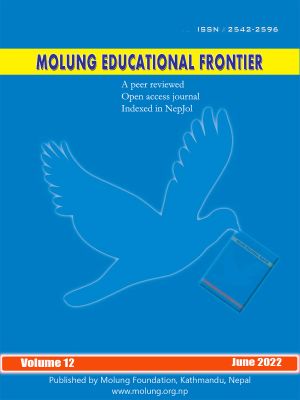An Analysis of Student Assessment Practices in Higher Education of Nepal
DOI:
https://doi.org/10.3126/mef.v12i01.45898Keywords:
quality of education, assessment quality, student assessment, paper-pencil test, item analysisAbstract
Student assessment is an integral part of the teaching-learning process of the formal education system. It is collecting, evaluating, analyzing, and documenting students' progress using various assessment devices, tools, and strategies. Various assessment practices in higher education, such as oral test, paper-pencil test, practical test, project work, group work, and other non-testing devices, but paper-pencil test seems to be the most commonly used tools in Nepali higher education. Most of Nepal's universities do not seem to have adopted assessment tools other than the traditional paper-pencil test. So, the assessment in higher education has now become an issue of discussion and debate. This paper attempts to analyze student assessment practices and their problems in higher education in Nepal. For this purpose, data were collected from both primary and secondary sources. Primary data were collected from the media's teachers' opinions, cases, and issues coverage. Secondary data were collected from the reviews of both archive and digital documents. The major findings of this paper indicate that there are so many problems in the assessment system. As a result of the inappropriate assessment system, higher education quality has been deteriorating day by day compared to developed countries. It is mainly due to lack of accountability (examiner, examinee, and exam authority), time allocation, lack of digital technology to assess student progress, lack of item analysis, and lack of the alternative use of the paper-pencil test. The present assessment system is not liable for ensuring the quality of higher education. This paper explores some issues related to assessment practice which could be the starting point for the assessment reform.
Downloads
Downloads
Published
How to Cite
Issue
Section
License
© Molung Foundation




